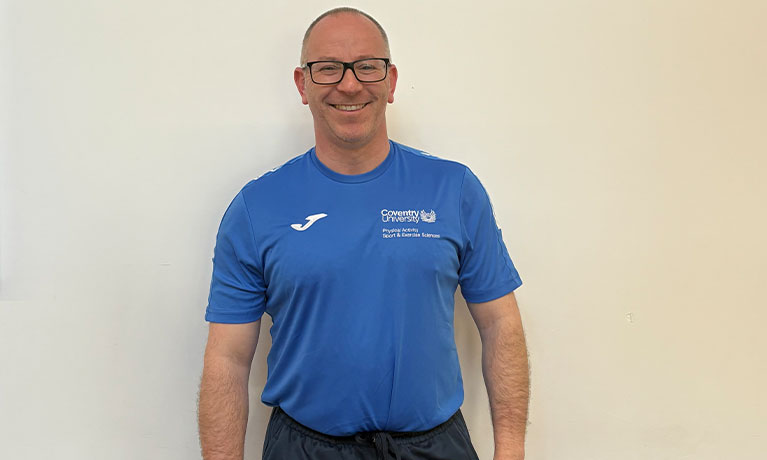Search
Three ways we can empower future generations to improve their physical and mental health

Professor Michael Duncan
Monday 07 April 2025
Press contact
On average, young people are spending more than 14 hours a week staring at screens, but less than four hours exercising - a shift that is contributing to rising obesity rates and mental health issues as well as poor posture and a lack of basic movement skills.
This World Health Day, Professor Michael Duncan, Director of Coventry University’s Research Centre for Physical Activity, Sport and Exercise Sciences, shares three ways we can improve the mental and physical health of future generations.
Building movement skills early
The benefits of physical activity to our mental and physical health are well-known, yet many health campaigns focus primarily on encouraging young people to be physically active, without considering whether they have the basic movement skills needed to exercise effectively.
Skills such as running and jumping, typically developed in early childhood through play and physical activity, are the building blocks of an active lifestyle in adulthood. However, our research shows that many children aren’t mastering them early enough, which can lead to frustration and a negative association with exercise later in life. If children struggle with these basics, they are more likely to avoid physical activity as they grow, contributing to long-term health issues, including obesity, type 2 diabetes and heart disease.
Begin with the basics: practice regularly, explore different ways of exercising and find what works best. Variety improves a range of movement skills, and even small improvements add up over time, instilling healthy habits that support both physical and mental well-being in the long term.
Making social connection the priority
Even for those with strong movement skills, it’s often the experience - not just the act of exercising itself - that keeps people consistent. When we engage in physical activities with others, it lifts our mood and provides a sense of accomplishment, fuelling our commitment to keeping active. As social beings, combining movement with social connection taps into two things that are natural and healthy for us.
Teaming up with others also shifts our focus to the social element, helping us push through fatigue that might feel more prominent or discouraging when exercising alone. Team morale can inspire us to push ourselves further, as we want to contribute to shared goals and enjoy the support and recognition from our friends and peers.
Our research into recreational football for adults emphasises the importance of engaging in physical activity in social settings. Many participants shared that football wasn’t just fun - it felt like part of who they were, with some even saying it was “in their blood.” The study found that what kept people returning wasn’t just the sport itself but the sense of community it provided. The collective energy and enjoyment shared with others contribute to a long-term commitment to physical activity, reinforcing the idea that enjoyable experiences are more likely to be repeated.
Recognising that physical activity looks different for everyone
As we move through life, our relationship with physical activity evolves. Our preferences, abilities and circumstances always change, so narrow or rigid views about what constitutes exercise can limit our options. The assumption that physical activity must fit a common form – such as running or going to the gym – won’t apply to everyone, as what works for one person, may not work for another.
Some people thrive in structured gym settings, while others enjoy high-adrenaline activities such as tennis or dance. Regular walks can be just as beneficial. Recognising that our preferences may change over time helps us stay open to new possibilities. There’s no one-size-fits-all approach to staying active - as long as we find activities that keep us engaged, they will benefit our health. Physical literacy is about more than just movement; it’s about understanding what motivates us and discovering ways to stay active that feel fulfilling.
Find out more about Professor Michael Duncan and the Research Centre for Physical Activity, Sport and Exercise Sciences.




